February 13, 2023 •
Arizona Increases Campaign Contribution Limits
The Arizona Secretary of State’s Office has increased campaign contribution limits for the 2023-2024 election cycle. An individual may now contribute $5,400 per election cycle to a candidate committee for statewide office and legislative office. Additionally, an individual may contribute […]
The Arizona Secretary of State’s Office has increased campaign contribution limits for the 2023-2024 election cycle.
An individual may now contribute $5,400 per election cycle to a candidate committee for statewide office and legislative office.
Additionally, an individual may contribute $6,650 per election cycle to a candidate committee for district, county, town, and city office.
Contribution limits for PACs have also increased. A PAC without Mega PAC status may contribute $5,400 per election cycle to a candidate for statewide office.
In contrast, a PAC with Mega PAC status may contribute $10,800 per election cycle to candidates for statewide and legislative office, and $13,300 per election cycle to candidates for district, county, town, and city office.
These increases are implemented by the secretary of state in January of odd-numbered years.
February 2, 2023 •
The Public Affairs Council
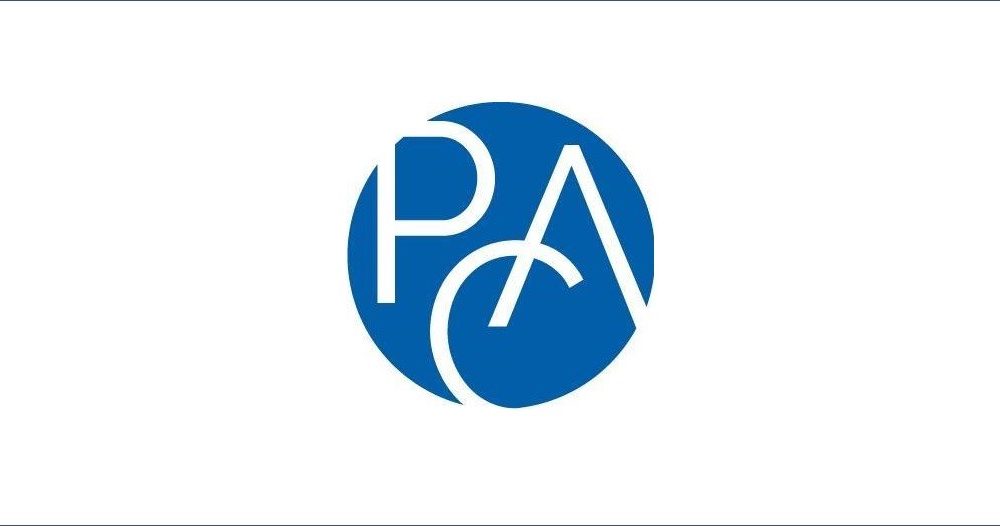
Are you a member of the Public Affairs Council? I joined the PAC’s Membership Committee, headed up by Greg Crist from AdvaMed and, in all honesty, was shocked at the companies who are not members. Consider this column your invitation […]
Are you a member of the Public Affairs Council? I joined the PAC’s Membership Committee, headed up by Greg Crist from AdvaMed and, in all honesty, was shocked at the companies who are not members.
Consider this column your invitation to join.
As a busy public affairs executive, you have a lot to manage – issues, priorities, expectations, staff – while remaining abreast of political and economic trends which affect your business. The Public Affairs Council is always there to help by providing the education, expertise, and a professional community you and your colleagues need to meet your goals. Though its diverse membership of more than 700 companies, associations, advocacy organizations, and consulting firms do not always agree on the issues, they are united by a desire for ideas that work. They help them achieve success through:
- Free, individualized counsel and advice. Need help with strategic planning, measuring the impact of your work, engaging your CEO, or getting a new hire up to speed? The staff experts in Washington and Brussels can answer these questions and more.
- Research and information sharing. Want to know how your program stacks up against your competitors? Looking for data to help you justify additional staff or budget? Curious to see how other companies structure their departments? It has hundreds of resources, including benchmarking and trend studies, and sample materials from org charts to social media policies.
- More than 100 training events each year (have you seen our company calendar?)– from multi-day conferences to concise and focused teleconferences – on a variety of topics and for everyone from entry-level to seasoned veterans. Members receive discounted or free registration to all Council events, plus all policy issue and best practice webinars are included with the membership.
- Connections to more than 10,000 individual members who understand your challenges and share your drive for results.
Yes, there are others, but only the Public Affairs Council offers expertise in lobbying, corporate social responsibility, issues management in addition to PACs, international markets, digital advocacy, corporate communications, and everything in between. One annual membership fee gives you – and every employee of your company – access to a host of valuable benefits.
Simply put, the Council offers an excellent return on your investment. You can learn more on the Council’s website, at www.pac.org.
Connect with Doug Pinkham, dpinkham@pac.org, and he will give you more specifics on the benefits of membership…and pick up the cost of a cup of coffee.
The Public Affairs Council was the first association I was introduced to when I joined State and Federal Associates in 1983 and the first association I joined when I bought my department and started State and Federal Communications almost 30 years ago. I never think about whether it is worth it…because it always is!
January 3, 2023 •
Illinois 2023 Campaign Contribution Limits Published
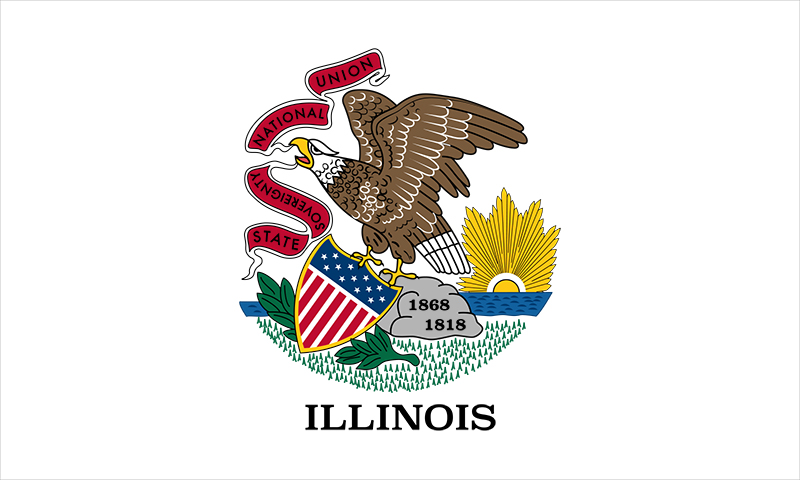
State Flag of Illinois
The State Board of Elections published the new contribution limits summary sheet, which increases limits on January 1 of every odd-numbered year to reflect increases in inflation. The amount corporations and labor organizations may contribute in each election cycle increased […]
The State Board of Elections published the new contribution limits summary sheet, which increases limits on January 1 of every odd-numbered year to reflect increases in inflation.
The amount corporations and labor organizations may contribute in each election cycle increased from $12,000 to $13,700 to any candidate committee; from $24,000 to $27,400 to any political party or legislative caucus committee; and from $24,000 to $27,400 to any PAC.
The amount an individual may contribute in each election cycle increased from $6,000 to $6,900 to any candidate committee; from $12,000 to $13,700 to any political party or legislative caucus committee; and from $12,000 to $13,700 to any PAC.
The amount PACs are limited to contributing to any candidate committee, political party committee, legislative caucus committee, or PAC each election cycle increased from $59,900 to $68,500.
June 9, 2021 •
Bill Adjusting Contribution Limits Passes
Tennessee Gov. Bill Lee signed a bill to allow PACs to give state Senate candidates $25,400 over a four-year election period. Senate Bill 1120 requires the PAC limits for Senate candidates to reset every two years in the same manner […]
Tennessee Gov. Bill Lee signed a bill to allow PACs to give state Senate candidates $25,400 over a four-year election period.
Senate Bill 1120 requires the PAC limits for Senate candidates to reset every two years in the same manner as they do for House candidates.
This will double the previous PAC limit of $12,700 because Senate candidates may receive the entire $25,400 at one time.
The bill is effective immediately.
February 25, 2021 •
Federal Election Commission Approves AO for PAC Data Use
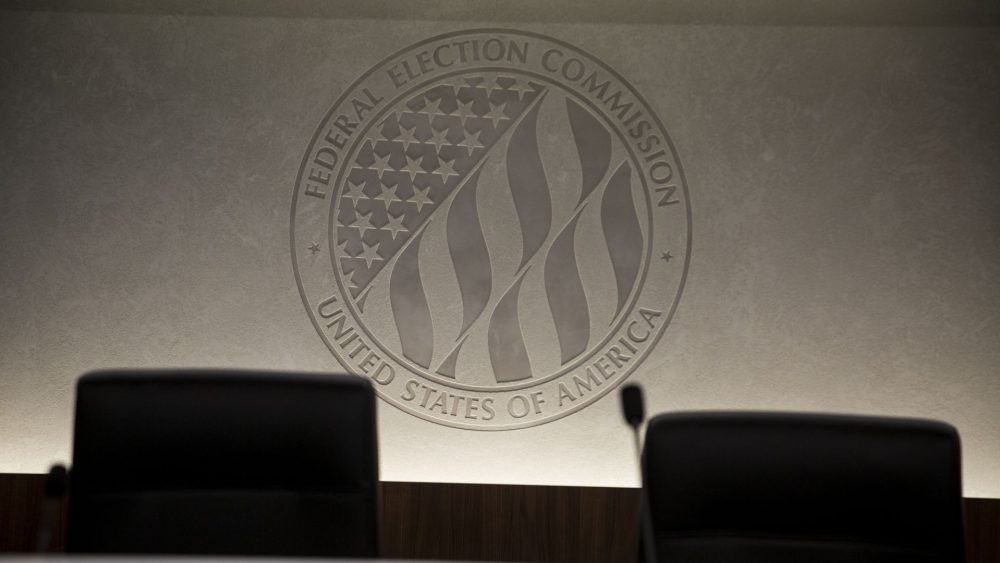
FEC; Photo: Sarah Silbiger/CQ Roll Call
On February 25, the Federal Election Commission (FEC) approved an advisory opinion allowing certain PACs to use aggregated data collected from the PAC’s contributors to advance the PAC’s political interests. Advisory Opinion 2021-02 holds an independent expenditure-only PAC may inform […]
On February 25, the Federal Election Commission (FEC) approved an advisory opinion allowing certain PACs to use aggregated data collected from the PAC’s contributors to advance the PAC’s political interests.
Advisory Opinion 2021-02 holds an independent expenditure-only PAC may inform a member of Congress or congressional candidate of the number of its contributors who live in the relevant state or district and the collective dollar amount that they give to the PAC. The request for the opinion was made by FEN-PAC, an independent expenditure-only political committee engaging lawmakers and candidates to advocate on certain legislative and policy issues. FEN-PAC, in its request, said it would not disclose any contributor’s contact information, nor would FEN-PAC or any third parties use any individual contributor information to solicit contributions or to sell other products or services.
The FEC held such use of aggregate data does not violate the Federal Election Campaign Act or any FEC regulations because it is not being sold or used for either soliciting contributions or commercial purposes.
The FEC specifically did not address any other federal laws or regulations could be affected by the PAC’s use of the aggregated data.
January 22, 2020 •
West Virginia Senate Considering Bill Changing Contributions Limits
A bill has been introduced in the Senate setting new limits on political contributions. Senate Bill 566 would reduce current limits on contributions to candidates from $2,800 to $1,000 per election. Additionally, contributions to a PAC related to a particular […]
A bill has been introduced in the Senate setting new limits on political contributions.
Senate Bill 566 would reduce current limits on contributions to candidates from $2,800 to $1,000 per election.
Additionally, contributions to a PAC related to a particular election reduce from $5,000 to $1,000.
The bill would also reduce contributions limits to state party executive committees from $10,000 to $1,000 per calendar year.
September 23, 2019 •
Montana Increases Campaign Contribution Limits
Campaign contribution limits increased following an every other year adjustment to match inflation required by state law. The amount an individual or PAC may give to a campaign for governor rose from $680 to $710 per election. The aggregate amount […]
Campaign contribution limits increased following an every other year adjustment to match inflation required by state law.
The amount an individual or PAC may give to a campaign for governor rose from $680 to $710 per election.
The aggregate amount a PAC may give to a candidate for state Senate rose from $2,850 to $3,050.
Additionally, the same amount rose from $1,750 to $1,850 for a candidate for state House.
The Commissioner of Political Practices is in charge of calculating the increase by multiplying last cycle’s limits by an inflation factor provided by statute.
The new contribution limits took effect September 21. Contributions made before that date are subject to the old limits.
However, those who have already given money may contribute again up to the new limits.
April 10, 2019 •
Missouri Appeals Court Upholds PAC Contribution Ban
Missouri corporations may not make direct contributions to their own PACs, the Court of Appeals for the Western District affirmed on April 9. The appeals court ruling upheld a similar 2018 finding in the Missouri Chamber of Commerce and Industry’s […]
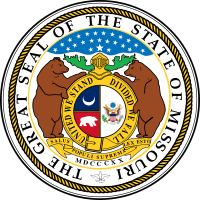 Missouri corporations may not make direct contributions to their own PACs, the Court of Appeals for the Western District affirmed on April 9.
Missouri corporations may not make direct contributions to their own PACs, the Court of Appeals for the Western District affirmed on April 9.
The appeals court ruling upheld a similar 2018 finding in the Missouri Chamber of Commerce and Industry’s lawsuit against the Missouri Ethics Commission.
There, the chamber challenged two of the commission’s ethics opinions that prohibited corporations from contributing directly to the PACs they form.
The Cole County Circuit Court issued a judgment in favor of the commission, determining corporations that serve as connected organizations cannot contribute corporate funds to their connected PACs.
April 5, 2019 •
Utah Campaign Finance Bills Signed
Last week, Gov. Gary Herbert signed six bills amending the state’s campaign finance laws. Updates include amended registration and reporting requirements for political action committees (PACs) and political issues committees (PICs). Additionally, updates modify provisions relating to the statement of […]
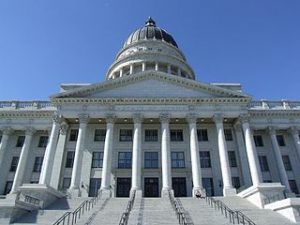 Last week, Gov. Gary Herbert signed six bills amending the state’s campaign finance laws.
Last week, Gov. Gary Herbert signed six bills amending the state’s campaign finance laws.
Updates include amended registration and reporting requirements for political action committees (PACs) and political issues committees (PICs).
Additionally, updates modify provisions relating to the statement of organization and naming requirements of a PAC.
Other changes include a provision banning PICs from contributing to PACs and clarifications on how to dissolve a PAC.
Regarding electioneering communications, House Bill 319 requires a person making an expenditure for certain advertisements relating to a ballot proposition to disclose the person’s identity in the advertisement.
All bills take effect on May 13, 2019.
February 12, 2019 •
Oklahoma Ethics Commission Acts on Proposed Rule Changes
The Oklahoma Ethics Commission chose not to vote on Proposed Rule 2019-02 after hearing public comments that the proposal would affect free speech and political activity. The proposed rule would have required disclosure of the names of organizations involved in […]
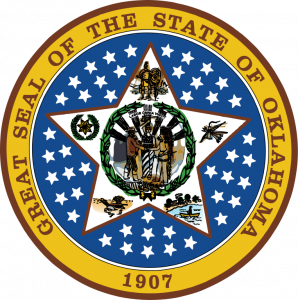 The Oklahoma Ethics Commission chose not to vote on Proposed Rule 2019-02 after hearing public comments that the proposal would affect free speech and political activity.
The Oklahoma Ethics Commission chose not to vote on Proposed Rule 2019-02 after hearing public comments that the proposal would affect free speech and political activity.
The proposed rule would have required disclosure of the names of organizations involved in indirect or grassroots lobbying via radio, phone, internet or other broadcast media if those groups spent more than $500 on campaigns for or against specific pieces of legislation.
Those groups would also have been required to file reports with the Ethics Commission if expenditures exceeded $5,000.
The Ethics Commission passed other proposals for consideration, including a revolving door provision prohibiting elected state officers and chief administrative officers from lobbying for two years following their terms of office or service, new rules regarding the due dates of electronic filings, and revised reporting periods for candidate election reports and independent expenditure reports.
Additionally, the Ethics Commission submitted a proposal to prohibit state legislators from operating or becoming an officer of a PAC.
If the Legislature chooses not to reject the proposed rule changes again, all passed amendments will be effective upon adjournment sine die of the regular legislative session on May 31.
February 8, 2019 •
Massachusetts Considering Lowering Union Contribution Limit
The Massachusetts Office of Campaign and Political Finance released draft regulations this week that would reduce the amount of money a union can contribute to a candidate annually from $15,000 to $1,000. A state law banning corporate contributions was upheld […]
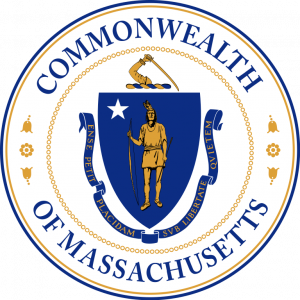 The Massachusetts Office of Campaign and Political Finance released draft regulations this week that would reduce the amount of money a union can contribute to a candidate annually from $15,000 to $1,000.
The Massachusetts Office of Campaign and Political Finance released draft regulations this week that would reduce the amount of money a union can contribute to a candidate annually from $15,000 to $1,000.
A state law banning corporate contributions was upheld by the high court this year, but the ruling noted Massachusetts law was unclear regarding contributions from unions.
The draft regulation would also cap union contributions at $500 to a PAC, and $5,000 to a political party.
A public hearing on the draft regulations will be held on March 15 with the final regulations expected by May.
February 7, 2019 •
Federal Lobbyist Bundling Disclosure Threshold Increased to $18,700
Today, the Federal Election Commission (FEC) published its price index adjustments for expenditure limitations and the federal lobbyist bundling disclosure threshold. The lobbyist bundling disclosure threshold has increased for 2019 from $18,200 to $18,700. This threshold amount is adjusted annually. […]
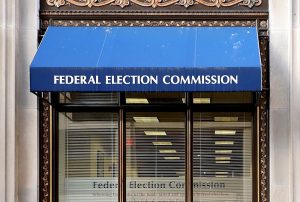 Today, the Federal Election Commission (FEC) published its price index adjustments for expenditure limitations and the federal lobbyist bundling disclosure threshold.
Today, the Federal Election Commission (FEC) published its price index adjustments for expenditure limitations and the federal lobbyist bundling disclosure threshold.
The lobbyist bundling disclosure threshold has increased for 2019 from $18,200 to $18,700. This threshold amount is adjusted annually.
Federal law requires authorized committees of federal candidates, leadership political action committees (PACs), and political party committees to disclose contributions bundled by lobbyists and lobbyists’ PACs.
Additionally, the FEC published its adjusted Coordinated Party Expenditure Limits for political parties for 2019.
February 7, 2019 •
Let the Fundraising Begin: FEC Publishes Contribution Limits for 2019-2020 Election Cycle
Today, the Federal Election Commission (FEC) published the 2019-2020 election cycle contribution limits, which have been indexed for inflation. As required by the Bipartisan Campaign Reform Act of 2002, the FEC must adjust certain contribution limits every two years. The […]
 Today, the Federal Election Commission (FEC) published the 2019-2020 election cycle contribution limits, which have been indexed for inflation.
Today, the Federal Election Commission (FEC) published the 2019-2020 election cycle contribution limits, which have been indexed for inflation.
As required by the Bipartisan Campaign Reform Act of 2002, the FEC must adjust certain contribution limits every two years.
The individual and nonmulticandidate PAC contribution limit to federal candidates has increased from $2,700 to $2,800 for both primary and general elections, allowing for a total of $5,600 for a federal candidate.
The limits on contributions by individuals to national party committees has increased from $33,900 to $35,500 per calendar year.
Individuals may now contribute $106,500 per calendar year to committees of a national political party for presidential nominating conventions, to committees of a national political party for preparation for and the conduct of election recounts and contests and other legal proceedings, and to committees of a national political party for the construction, purchase, renovation, operation, and furnishing of one or more buildings for party headquarters.
February 4, 2019 •
Oklahoma Restricts Contributions During Legislative Session
Beginning Monday, February 4, through five calendar days following sine die adjournment, several actions regarding campaign contributions by lobbyist principals are prohibited in Oklahoma. A lobbyist or lobbyist principal must not make a campaign contribution to a member of the […]
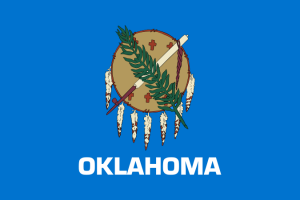 Beginning Monday, February 4, through five calendar days following sine die adjournment, several actions regarding campaign contributions by lobbyist principals are prohibited in Oklahoma.
Beginning Monday, February 4, through five calendar days following sine die adjournment, several actions regarding campaign contributions by lobbyist principals are prohibited in Oklahoma.
A lobbyist or lobbyist principal must not make a campaign contribution to a member of the legislature or a candidate for state legislative office; promise to make a campaign contribution for a member of the legislature or candidate for state legislative office; or solicit a campaign contribution for a member of the legislature or candidate for state legislative office.
A member of the Legislature or a candidate for state legislative office must not intentionally solicit a campaign contribution from a lobbyist or lobbyist principal; or intentionally accept a campaign contribution from a lobbyist or lobbyist principal.
A contribution from a lobbyist or lobbyist principal to a member of the legislature or a candidate for legislative office that has not been deposited before February 4 must be returned to the contributor.
This statutory blackout period does not prevent a limited Political Action Committee (PAC) from making one or more contributions to a candidate committee up to the limits allowed under the ethics rules provided the PAC is not represented by a lobbyist.
State and Federal Communications, Inc. provides research and consulting services for government relations professionals on lobbying laws, procurement lobbying laws, political contribution laws in the United States and Canada. Learn more by visiting stateandfed.com.

